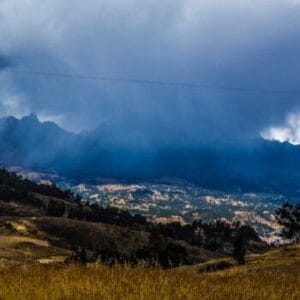FS 3.156
To move or stay behind is the question
Details
Full Title
FS 3.156: Move or stay behind? Migration as adaptation in the context of climate change in the Hindu Kush HimalayaScheduled
TBATBAConvener
Co-Convener(s)
Maharjan, Amina; and Sharma, SagarAssigned to Synthesis Workshop
---Thematic Focus
Adaptation, Others, Policy, Sustainable DevelopmentKeywords
Migration, Adaptation, Hindu Kush Himalaya, Climate change
Description
Migration has been an important livelihood strategy of communities living in the Hindu Kush Himalaya region. The evidence shows that there are muti-dimensional drivers of migration, such as economic and environmental factors. In-situ responses are becoming inadequate or no longer viable due to increasing climate variability and extreme climatic events. This has intensified migration in the region resulting in social, economic, ecological and political impacts at both origins and destinations. However, migration is not an option for everyone, because social, cultural and economic barriers significantly limit one’s ability to move. The policy discourse and mainstream media in the region often portray migration as challenge. Such efforts can be counterproductive, increasing exposure of communities, particularly marginalized communities, to growing climate crisis at origins as well as destinations. The outcomes of migration for left behind and migrant populations vary widely, significantly differentiated by gender and other contextual social markers. It is crucial to understand who decides to migrate or stay behind and under what conditions migration can be an adaptation or improve adaptive capacity. Therefore, this open session invites researchers, and practitioners from diverse disciplines to bridge knowledge gaps and inform current policies and practices that better support people who choose to remain or leave in the mountains. The selected presentations will be primary research adopting different types of qualitative and quantitative methods, with an emphasis on the co-creation techniques diverse stakeholders.
